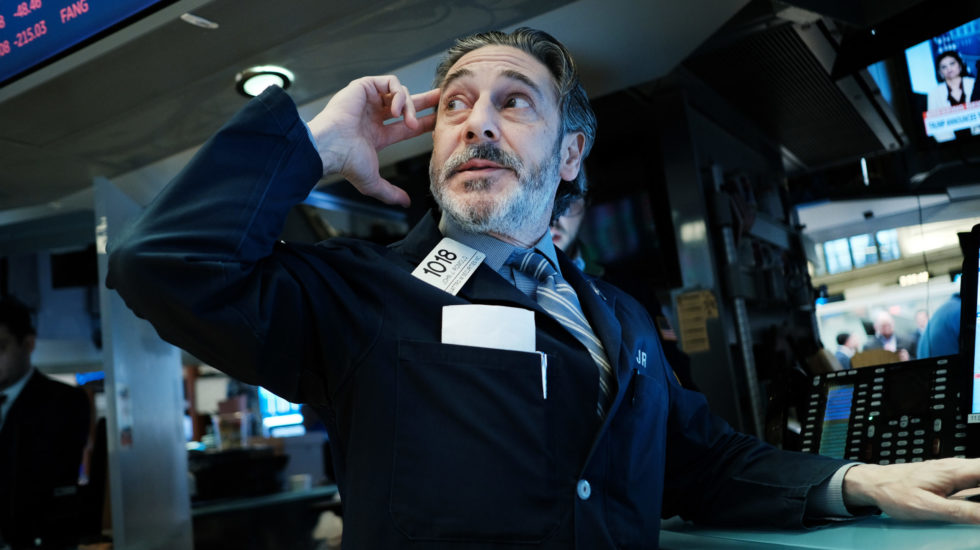Wall Street suffered its worst single day in three decades on Monday, a precipitous dive propelled by coronavirus fears, global economic decline and investor panic.
The Dow Industrials fell nearly 3,000 points, almost 13%, at the close — and continued to drop during an afternoon news conference by President Trump. The S&P 500 and the Nasdaq were both off more than 12%.
It’s now firmly a bear market, the Federal Reserve is about out of arrows in its economic-stimulous quiver, and experts foresee more losses to come.
“This is what panic looks like,” Patrick Healey, president of Caliber Financial Partners, told the Wall Street Journal. “It doesn’t matter what the Fed did over the weekend or what they could have done, the trading activity in the market is reflective of fear and uncertainty.”
“The only thing that is going to calm markets is seeing the number of [Covid-19 coronavirus] cases go down,” Healey said.
The day’s final big drop came shortly before the close, when investors learned that Trump had told reporters that the U.S. “may be” headed for a recession — and that the virus outbreak could last into mid-summer.
Shortly after Monday’s opening bell on the New York Stock Exchange, trading was temporarily halted as the S&P 500 slid more than 7%, triggering a market “circuit breaker,” an automatic brake on trading. It was the third 15-minute trading pause in six sessions.
But it didn’t help.
“By mid-afternoon, declines in U.S. stocks were broad, with all 11 sectors of the S&P 500 falling,” the Journal said. “Financials were among the hardest hit, and shares of Citigroup, Bank of America and JPMorgan Chase each declined more than 13%.”
As the New York Times put it, “investors were confronted with evidence that a steep decline in the world’s largest economies may have already begun.”
“The financial downdraft was global, with major benchmarks in Asia, Europe and the United States all falling on Monday,” the newspaper said.
“The market’s losses the last few weeks are the steepest since the 2008 financial crisis dragged the economy into the Great Recession,” reported the Associated Press, adding that Trump and other experts expect the market could bounce back strongly as soon as the virus is under control.
“The problem is that no one knows when that could be, and broad swaths of the economy are grinding closer to a standstill in the meanwhile, from parked airplanes to the nearly empty restaurant around the corner,” the AP says.



